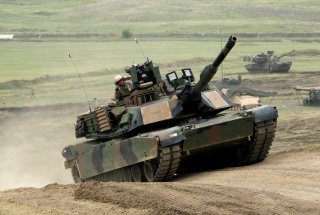Kris Osborn

The recently-unveiled General Dynamics Land Systems AbramsX main battle tank is set to be loaded out with artificial intelligence-enabled target data processing, breakthrough command and control, manned-unmanned teaming capabilities, autonomous navigation and sensing, and course-correcting ammunition. Just unveiled at the Association of the U.S. Army Annual Symposium, the AbramsX demonstrator vehicle represents an effort to integrate a series of breakthrough technologies and enhancements to propel the tank platform for decades into the future. Could there even be an Abrams in 2050? Can the Army even develop a highly networked and lethal heavy armor platform? Only time will tell. Such questions are certainly on the Army’s mind as it evaluates its future force and seeks to transition promising new technologies to the operational force.
In a special interview with the National Interest, Undersecretary of the Army Gabe Camarillo explained that critical experimentation and analysis is necessary to navigate a specific path forward. However, he also stressed that the Army’s direction needs to prioritize innovation and continued modernization. At the moment, there are far too many evolving variables for a specific determination to be made, Camarillo emphasized. Of course, senior Army leaders regularly avoid offering opinions or making any specific comments related to a particular industry offering or platform, but Camarillo did address the critical dynamics related to heavy armor, combat platforms, and innovation for the future force.
“It's too early to say what the future of the Army's battle tank is going to be. But what I can tell you is that, you know, we are looking down the road, you know, what, what are the investments that we need to make, you know, what is currently the art of the possible and I think, as [Army Futures Command] continues to do experimentation through the [Next Generation Combat Vehicles Cross Functional Team], we will begin to extract some lessons learned,” Camarillo said.
Some elements of the AbramsX are likely unavailable for security reasons, but the General Dynamics Offering clearly reflects an effort to anticipate and address emerging Army requirements for future wars. Some specifics include a new generation of autonomy, command and control systems, AI-enabled data and sensor management, on-board power management, and a hemispheric Active Protection System to stop drones and top-down-fired anti-armour weapons.
“We are very focused on ensuring that we have a top attack counter [drone] capable capacity there, whether it's one system or a series of several systems. When the Army makes that decision, we're going to show what some of those capabilities are,” said Tim Reese, director of U.S. business development for General Dynamics Land Systems. “Artificial intelligence helps us with reducing the crew's cognitive burden, making them more productive.”
The Army's AbramsX Active Protection System is engineered to accommodate any specific solution requested by the Army, meaning it is built with technical infrastructure capable of integrating any explosive or sensor the Army needs.
"It does have an integrated APS system, we are not presupposing the Army's decision … rather we're making sure we have all the hooks and the power, that whatever charges or explosive charges they choose, or effectors they choose or whatever radars they choose, it will be an application of them on there not a whole redesign to enable it," Keith Barclay, director of U.S. strategy and growth at General Dynamics Land Systems, told the National Interest in an interview.
No comments:
Post a Comment